
'Africa Still Attractive to Investors Despite Occasional Geopolitical Challenges'
The African continent has enormous potential and remains an attractive destination for investors, despite complex national contexts and geopolitical changes, experts said during the Africa Investment Forum 2022 Market Days.
Africa is facing external shocks that negatively impact its growth and socioeconomic development.
The Covid-19 pandemic has compromised the sustained growth that the continent has enjoyed for the last 25 years, and the Russian-Ukraine war is threatening populations with a severe food crisis.
Panelists raised these points on November 3 during the Forum held from November 2-4 in Abidjan, Côte d’Ivoire during the session titled 'Trade and Investment: How can Africa be more competitive in the world context?'.
Speakers included Souleymane Diarrassouba, Ivorian minister for Trade, Crafts, and Small and Medium Enterprises; Benedict Okey Oramah, African Import-Export Bank (Afreximbank) President; and Wamkele Mene, Secretary General of the African Continental Free Trade Area Secretariat, made opening remarks.
Other were Admassu Tadesse, President of the Eastern and Southern Africa Trade and Development Bank; Rajakumari Jandhyala, President of YAATRA Ventures (a platform offering investors a specific approach for deploying capital in energy, infrastructure and added-value opportunities in Africa and emerging markets); Mohan Vivekanandan, Director of the Development Bank of Southern Africa; and Bernard Ayitée, President and Director General of Obara Capital (an investment fund offering solutions and alternative financing to enterprises and African countries).
Africa’s potential in the world economy is growing.
Most of its population is young people; a quarter of the world’s population is likely to live in Africa between now and 2050, and the African Free Trade Zone is making progress.
Nearly two-thirds (65%) of unused arable land is found in Africa, which is also rich in minerals (including cobalt, lithium that are essential for producing batters, and Africa is the world leader in such agricultural products as cacao, coffee, cotton, essential oils, mahogany).
Minister Diarrassouba emphasized Africa’s relatively low production costs: “Africa is the world’s most profitable region, according to the OECD. Investors from the continent and elsewhere ought to seize its enormous investment opportunities”.
Benedict Oramah called on African countries to redouble their efforts to make the free-trade zone fully operational so that Africa no longer lags behind other regions in regional integration.
Wamkele Mene argued that the free-trade zone, representing a market of 1.3 billion consumers, will increase Africa’s global competitiveness for direct foreign investments and free up commercial flows.
He said certain transaction costs had already dropped since the agreement took effect and urged countries to develop their value chains in productive sectors, including agriculture, mines, and energy. Mene also announced the Third Inter-African Trade Fair this November in Abidjan.
The session outlined ways the continent can take advantage of ambitious trade policies and innovations in financial services to facilitate capital flows toward development projects. Delegates pointed to the significant progress banking institutions have made in infrastructure investment.
“We can be hopeful. The levels of collaboration and co-financing are high,” Tadesse said, citing investments in gas projects in Mozambique and thermal energy in Tanzania.
YAATRA Ventures gave the example of its investments in energy security in Uganda, emphasizing that African investors’ perception of risk differs from that of Western investors.
Panelists agreed that if African financial institutions have a fundamental role to play for long-term investors in the continent, it’s up to the African countries to create an environment that is promising for attracting national and international investors.
Meanwhile, the Africa Investment Forum Market Days, the continent’s premier investment platform, drew $31 billion in investment interest from African and global investors.
Combined with $32.8 billion from the rescheduled 2021 Africa Investment Forum Market days, which took place as virtual boardrooms in March this year, the forum mobilized a total of $63.8 billion of investment interest this year.
The event attracted the participation of several African heads of state and government, including Vice President Tiémoko Meyliet Koné of Côte d’Ivoire, who represented President Alassane Ouattara, President Sahle-Work Zewde of Ethiopia, President Nana Akufo-Addo of Ghana, President Emmerson Mnangagwa of Zimbabwe, Vice President Jewel Howard Taylor of Liberia, Vice President Philip Mpango of Tanzania, Prime Minister José Ulisses Correia e Silva n of Cabo Verde, and Prime Minister Patrick Achi of Côte d’Ivoire.
This year’s Market Days event—the third since 2018—took place under the theme: ‘Building Economic Resilience through Sustainable Investments.’ It was held amid global economic challenges that have been compounded by the impacts of climate change, the Covid-19 pandemic, and the Russia-Ukraine war.
The event showcased the Africa Investment Forum’s founding partners’ joint resolve to help unleash Africa’s investment potential in such critical sectors as infrastructure, agriculture, energy, education, the creative industries, sports, and transactions that champion women entrepreneurs.
The forum’s founding partners are the African Development Bank, Africa50, Afrexim Bank, the Africa Finance Corporation, the Development Bank of Southern Africa, the European Investment Bank, the Islamic Development Bank, and the Trade and Development Bank.
The partners said the results this year have exceeded expectations, given that the world is currently grappling with so many unprecedented economic challenges.
African Development Bank President Dr. Akinwumi Adesina commended the forum’s outcomes and the partners' commitment.
He said: “Despite the challenges, we are not afraid, and neither have we despaired nor lost hope. We are excited and committed to a collective goal… accelerating the closure of deals to transform Africa and its investment landscape.”
Adesina said the Africa Investment Forum’s focus is to attract more foreign direct investment to Africa and ensure the private sector remains the driving force of that transformation.
“The private sector is Africa’s growth accelerator. We must mitigate real and perceived risks and persuade the private sector that investing in Africa is safe,” he emphasized.
Islamic Development Bank President Dr. Muhammed Sulaiman Al Jasser said in a message his organization was hopeful that “our commitment and dedication to the AIF will translate into tangible and measurable outcomes for the benefit of our member countries across Africa.”
Al Jasser restated the Islamic Development Bank Group’s commitment to support transformative African projects, especially those promoting resilience, financial, economic, and social sustainability.
Trade and Development Bank Group President and Chief Executive Admassu Tadesse underscored the value of the “AIF spirit” in doing more to advance and close investments.
Tadesse stressed: “Notwithstanding ongoing global crises, we have to keep our eye on the ball. We must continue to encourage and enable investment in agriculture and industry, as well as infrastructure. Growing our own food and manufacturing more will enable us to trade more. It will lead to less overall greenhouse gas emissions linked to imports from far away, in the process also generating more employment and opportunities for our peoples.”
European Investment Bank President Werner Hoyer said while traveling to COP27: “A diversity of ambitious and wide-ranging initiatives” attracted high interest at this year’s Market Days.
“At the European Investment Bank, we are excited to see how the creativity and vision of African innovators are making an impact, particularly in the area of technology which holds such great potential for Africa’s future,” Hoyer said.
Mohan Vivekanandan, Group Executive Origination and Coverage, Development Bank of Southern Africa, noted that a unique feature of this year’s forum was that it focused on transactions.
“It’s about the project sponsors, the project developers and how we as development financiers help them get their vision implemented to improve the quality of life of Africans, and how we promote economic growth, job creation and industrialization,” Vivekanandan said.
Africa Finance Corporation President and CEO Samaila Zubairu said: “The current global economic challenges indicate the critical need to build Africa’s self-sufficiency by investing in resilient infrastructure. Such critical investment is needed to drive Africa’s industrialization and economic prosperity.”
Africa50 CEO Alain Ebobisse said the Africa Investment Forum presented a timely platform to help scale up and speed up investments into Africa, especially as partners strive to build the continent’s resilience to economic shocks and climate change.
Ebobisse said: “Attracting new pools of capital into infrastructure will be critical. More specifically, Africa’s institutional investors, such as pension funds and sovereign wealth funds must play a critical role and will be the game changers for Africa’s infrastructure development.”
Afreximbank President Benedict Oramah said: “This year’s Africa Investment Forum reflects, in the number, attitudes and diversity of its attendees, the interest and optimism of global investors towards the continent and its opportunities. We close, knowing that the AIF, Africa’s largest transactional investment marketplace, continues to be a huge success. Moreover, the event serves as a measure of international confidence in Africa's economic and political development, and the unmatched investment opportunities this is creating.”
Africa Investment Forum Senior Director Chinelo Anohu said: “A lot of the successes recorded by the Africa Investment Forum are domiciled in the spirit of the partnership. It’s up to us to ensure the continent is what it ought to be.”
Since its inception in 2018, the Africa Investment Forum platform has mobilized over $100 billion in investment interests.
Source: afdb.org
Links
- 100 views


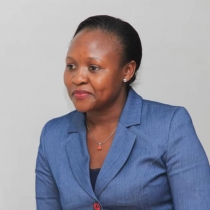



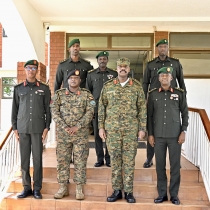

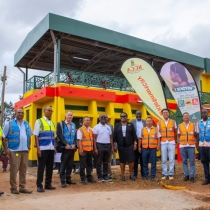

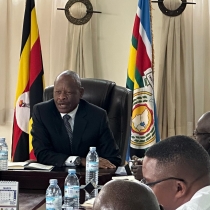








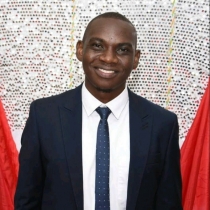








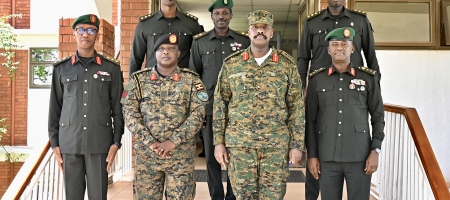
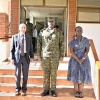












Join the conversation